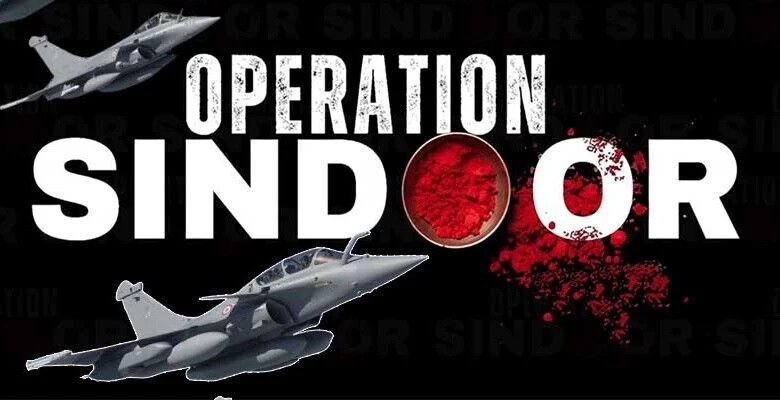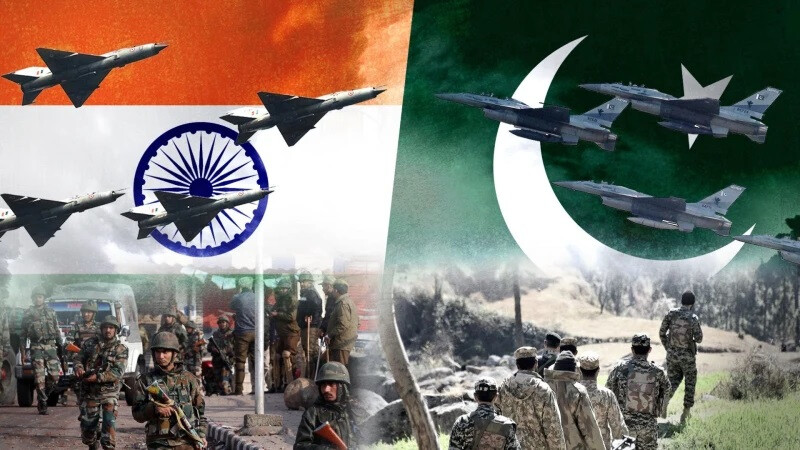
On April 22, 2025, the peace of Baisaran Valley near Pahalgam in Jammu and Kashmir was shattered by a heinous act of terrorism. Armed militants, allegedly affiliated with The Resistance Front (TRF)—a proxy of the Pakistan-based Lashkar-e-Taiba—executed 26 Indian tourists and injured more than 20 others. Survivor accounts indicate that the attackers deliberately verified the religious identities of their victims, selectively targeting non-Muslims in a cold-blooded execution. The atrocity, one of the deadliest civilian-targeted massacres in South Asia since 2008, reignited longstanding tensions between nuclear-armed neighbors India and Pakistan.
In response, India initiated Operation Sindoor on May 6, 2025—a series of precision air and drone strikes targeting nine terrorist training and command facilities located in Pakistan and Pakistan-administered Kashmir. These camps were operated by internationally proscribed organizations, including Lashkar-e-Taiba, Jaish-e-Mohammed, and Hizbul Mujahideen. India's goal was clear: to degrade the operational capacities of terrorist entities and to send an unambiguous message to state and non-state actors enabling cross-border militancy.
Terrorism as a Regional Threat
Operation Sindoor must be understood not as a unilateral Indian action, but as a countermeasure against a threat that transcends national boundaries. Terrorism—particularly when abetted by state complicity—poses a systemic threat to regional stability, economic growth, and the very foundations of the rules-based international order in the Indo-Pacific. Over the past three decades, India has endured numerous attacks orchestrated by actors based in Pakistan, including the 1993 Mumbai bombings, the 2001 Indian Parliament assault, the 2008 Mumbai siege, and the 2016 strikes on military bases in Uri and Pathankot. These were not isolated incidents; they were manifestations of a sustained asymmetric warfare campaign.
The regional implications of such attacks are profound. They risk triggering full-scale conflict between two nuclear powers, disrupt regional trade and connectivity initiatives, and embolden extremist ideologies with transnational reach. Furthermore, they divert critical state resources away from development and integration and inject volatility into an already fragile regional security environment.
The Doctrinal Shift: From Restraint to Proactive Deterrence
India’s counterterrorism posture has undergone a paradigmatic shift. Historically, New Delhi prioritized strategic restraint and international diplomacy in response to acts of terrorism. However, repeated provocations and the erosion of confidence in international mechanisms have compelled India to adopt a more assertive doctrine based on preemption and deterrence. Operation Sindoor is the latest manifestation of this evolution.
This transformation mirrors precedents established by other democracies in comparable contexts—such as the U.S. raid on Osama bin Laden’s compound in Abbottabad in 2011. Like its global counterparts, India is increasingly asserting its sovereign right to self-defense under Article 51 of the UN Charter when confronted with grave and persistent threats emanating from another state's territory.
Symbolism and Psychological Warfare
The naming of Operation Sindoor—after the traditional vermilion worn by married Hindu women—was emblematic, referencing the victims’ identities and the brutal targeting of newlywed couples. The use of religious identification as a basis for execution points to a deeper ideological pathology that must be confronted not just by India, but by all pluralistic societies in the Indo-Pacific. The attack was not only a physical assault but an act of psychological warfare intended to terrorize and fragment the social fabric of a democratic nation. Such tactics, if left unchecked, will become normalized in the wider region.

Kashmir and the Geopolitical Chessboard
The India–Pakistan rivalry, centered on the Kashmir dispute, remains one of the most volatile fault lines in the Indo-Pacific. Kashmir's strategic location and control over critical water resources governed by the Indus Waters Treaty make it both a geopolitical and hydrological flashpoint. India's recent moves to suspend aspects of the treaty reflect the deteriorating strategic trust between the two countries and the recalibration of India's response framework in light of persistent Pakistani support for non-state actors.
Why the Indo-Pacific Must Take a United Stand
The Indo-Pacific region—stretching from the Indian Ocean to the Western Pacific—is increasingly defined by interdependence, multilateral connectivity, and shared values such as freedom of navigation, rule of law, and peaceful conflict resolution. However, these foundational principles are undermined when terrorism is permitted to operate with impunity. If one of the region's largest democracies is subjected to relentless cross-border terror without meaningful regional support, the credibility of multilateral security frameworks is weakened.
Supporting India’s counterterrorism efforts is not merely a matter of solidarity—it is a strategic imperative. Terrorist safe havens and proxy militancy, if left unchallenged, will metastasize across borders, threaten maritime security corridors, and compromise regional developmental goals. Indo-Pacific states, many of whom have faced their own versions of extremist violence, must recognize that their silence or neutrality in the face of such attacks indirectly enables further aggression.
Pathways for Regional Cooperation
To confront the growing threat of terrorism, the Indo-Pacific must adopt a cohesive and institutionalized approach that transcends ad hoc responses and bilateral constraints. Regional partners must prioritize the establishment of robust intelligence-sharing mechanisms to ensure real-time coordination in tracking terrorist movements and dismantling transnational networks. Joint counterterrorism exercises, conducted under the auspices of platforms such as the Quad, the ASEAN Defense Ministers’ Meeting Plus (ADMM+), and the East Asia Summit, can enhance interoperability, build trust, and reinforce collective preparedness. At the same time, a shared commitment to cybersecurity and counter-radicalization is essential—particularly in monitoring and disrupting digital propaganda, online recruitment, and extremist financing channels. Equally important is the development of unified diplomatic messaging that unequivocally calls out and isolates state sponsors of terrorism in global forums, reaffirming that no actor can operate with impunity. Only through such integrated efforts can the region build a resilient security architecture capable of neutralizing asymmetric threats and safeguarding regional stability.
A Defining Moment for Indo-Pacific Unity
The Baisaran massacre and the subsequent Operation Sindoor mark a defining moment for the Indo-Pacific’s strategic orientation. The choice before the region is stark: allow terrorism and asymmetric warfare to chip away at collective security, or stand in resolute defense of the shared norms that underpin regional peace and prosperity.
For the Indo-Pacific to remain free, open, and inclusive, terrorism must be addressed as a shared threat that demands a collective and sustained response. Supporting India's right to self-defense, as well as its broader counterterrorism framework, should not be misconstrued as an endorsement of escalation. Rather, it constitutes a principled affirmation that the region will not capitulate to ideologically motivated violence or allow such forces to undermine regional security and stability.
At this pivotal moment, the Indo-Pacific must move beyond rhetorical commitments to a rules-based order and translate its strategic consensus into tangible, coordinated action. Failure to do so risks reducing the region to a passive observer amid the systematic erosion of that very order by asymmetric actors and extremist networks. It is imperative that key stakeholders in regional peace and prosperity—particularly Japan, China, South Korea, Vietnam, Thailand, Indonesia and Singapore—acknowledge the far-reaching consequences of unchecked cross-border terrorism and adopt a unified stance. Supporting India at this juncture is not merely an act of solidarity; it is an essential demonstration of the Indo-Pacific’s collective resolve to uphold sovereignty, reinforce international norms, and safeguard long-term regional equilibrium. Only through a concerted, values-based, and principled response can the Indo-Pacific resist the forces of disorder and ensure a secure and resilient future.
[Copyright (c) Global Economic Times. All Rights Reserved.]





























